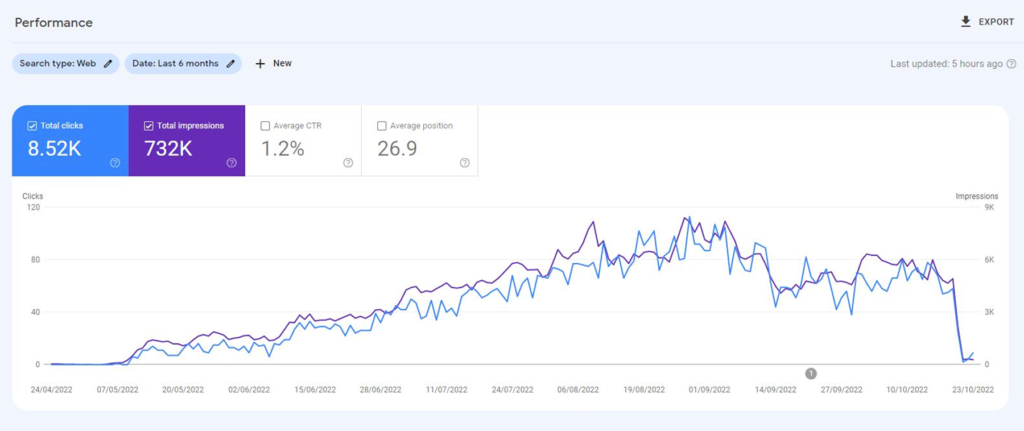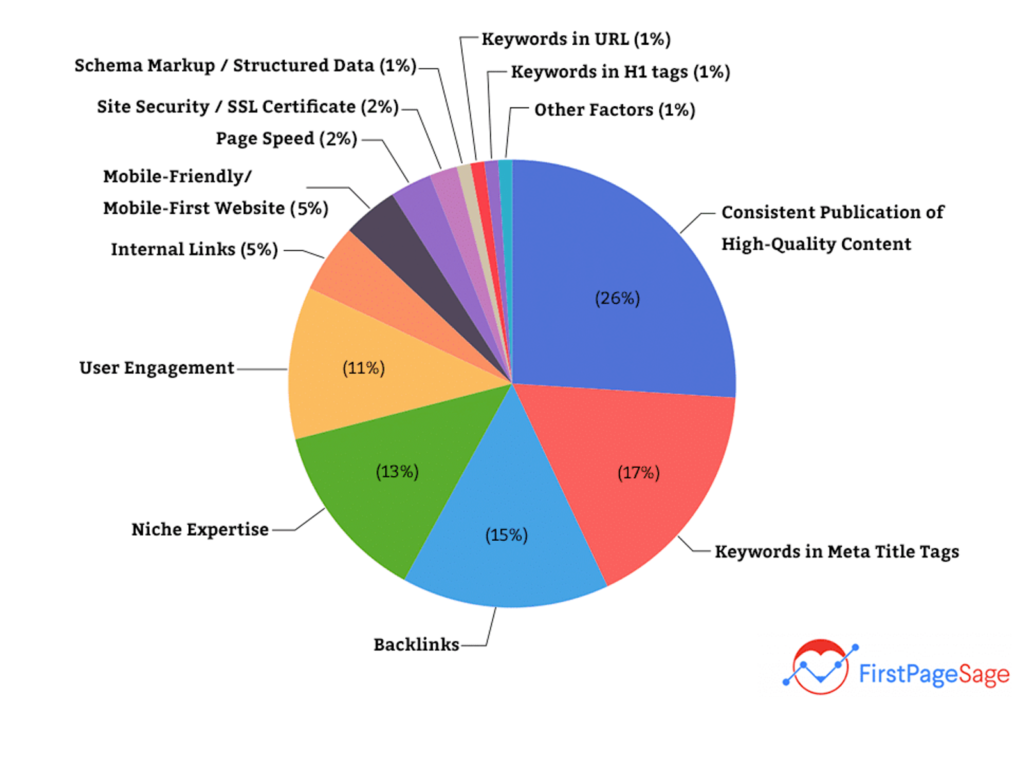2022 was a particularly turbulent year in the world of SEO, with plenty of notable Google algorithm updates seemingly happening at the same time or within close proximity, causing plenty of discussion in the SEO community.
This constant activity showed that Google isn’t slowing down in its relentless pursuit of providing the very best search results to users – and quite right too!
As we move into 2023, this year will be no different. It’s becoming easier for site owners and webmasters to produce masses of content (more on this later) which means Google is likely to work even harder to weed out the low-quality results and fulfil its mission of providing the very best search results.
So what can we expect from SEO in 2023? Are there any new, game-changing differences in regard to how businesses should be optimising their websites? Here are some of the SEO trends that you should adopt for your SEO strategy in 2023.
Before we launch into the latest AI initiatives or shiny new search engine features – our top recommendation for 2023 is to go back to basics.
Why? It can be easy to jump on the latest development or double down on the most recent AI implementation thinking you can gain the system, or take shortcuts – but the core SEO principles such as content creation, metadata optimisation, ensuring your site is technically sound with minimal errors etc, should always be the foundation of your SEO campaigns.
E.E.A.T stands for Experience, Expertise, Authority, and Trustworthiness. In short – If your website has strong E.E.A.T signals, you’re more likely to rank higher in search engine results pages (SERPs). This is not a new concept, but Google released the ‘Helpful content update’ in the summer of 2022, which aims to ensure that content ‘by people, for people’ is rewarded in search results.
Our translation? We know that anyone can create content on any subject and potentially rank in Google – but does this mean the content has authority? Google is looking for signals that the content is written – firstly by a person (more on this later) but also by a person of authority for the specific topic in question.
This is perhaps an extension of the YMYL (your money or your life) concept in which Google raters have a strict vetting process for content that will affect the reader financially or health-wise should they follow the advice on the article they’re reading.
To improve your E.E.A.T scores, make sure to have an experienced author with credentials listed on your site and provide evidence of trustworthiness by including customer reviews, testimonials and social media profiles. Additionally, having a privacy policy and terms & conditions page can also help to prove to Google that you run a legitimate business that provides value to your customers!
The use of AI-powered software in SEO is gaining in popularity. It seems that 2022 was the year in which the usage AI tools – especially content writing tools – skyrocketed and made it to the mainstream. Why? Because of the sophistication of these tools – and the content they produce – it’s very hard to tell that a piece of content is ‘machine written.’
As with all things in SEO, when a new tool is created, there are a small number of users who use it ‘for good’ but the majority will use it to try and cut corners and produce masses of content almost at the press of a button.
Our advice: don’t cut corners! Following on from point number 2 – Google is actively trying to weed out sites that are produced solely using AI content generator tools. Eventually, sites taking advantage of these tools will be found out as this site owner found out:

This graph shows an image of Google Search Console data for a site that used solely AI content – it was hit pretty hard in Google’s most recent spam update.
AI tools should be used to supplement/help to improve the quality of your written content – not completely automate the process. Whilst AI tools can regurgitate content from other websites, they can’t replace your personal experience – or the personal experience of the people in your organisation built over several years. It’s so important to use this expertise to write content / provide value to readers in 2023 and beyond.
There are plenty of AI initiatives being implemented into Google’s algorithm. For example, Google introduce MUM – an AI model designed to help understand the intention behind the search rather than the specific word used to help serve relevant search results.
Google doubled down on this by also launching LaMDA, an AI model used to understand natural language. According to Web FX, with the implementation of LaMDA, Google focuses on understanding dialogue better to deliver results more efficiently.
Google is also investing in understanding ‘conversational search phrases’. Conversational search is essentially the usage of complete sentences that users would use in natural conversation as opposed to the ‘short hand’ that users have become accustomed to using in search results. Google is getting more adept at understanding these types of searches through the AI technology baked into the algorithm.
So what does this really mean for my SEO efforts? It means that Google is still investing in its attempts to better understand users’ searcher intent – in other words – the ‘why’ behind the search.
This is great to know, but it doesn’t actually mean that businesses should be doing anything differently other than building great, helpful, natural content that answers your target audience’s queries comprehensively and as in detail as possible.
JKP -(Just keep publishing) – continued content creation
Okay, we’ll admit that JKP is a made-up acronym (but it might take off). It stands for ‘just keep publishing’ – meaning that you should never let your website ‘stagnate’ and continuously update the site with useful, informative content to better serve your target audience. Again, this is not a new concept, but one that all businesses should focus on in 2023 as this is perhaps the most impactful activity that will move the needle.
Firstpagesage created a graphic to demonstrate how each ‘ranking factor’ contributes to the overall algorithm:

Notably, the largest contributing factor is the ‘consistent publication of high-quality content.’ Similarly, 13% was attributed to ‘niche expertise.’ (these two factors are intrinsically linked). We expect these two factors to play an even bigger role in 2023 when it comes to increasing organic visibility.
So what does this mean? It’s important to implement a content production strategy to continue to build your site as a valuable resource for your given niche or site topic. This will potentially have the most significant impact over any other SEO activity in 2023.
Core web vitals are metrics that measure the loading performance, visual stability and user experience of web pages. Core web vitals provide data points to help site owners to focus on delivering an optimal user experience when it comes to speed, responsiveness and visual layout.
It’s important for businesses to pay attention to core web vitals, as they are now being used as one of the core ranking factors for SEO – and have been since mid-2021! It’s astounding how many businesses have overlooked the importance of Core Web Vital since its implementation.
By monitoring core web vitals, businesses can ensure that their website is performing optimally and delivering a good user experience – which continues to be a focus for Google in 2023.
Conclusion
In the world of SEO, it seems that the goalposts are always changing and nothing stays the same for very long. This is true for certain practices, but the core concepts have always been the same – create value. Every year brings new trends and changes in how Google ranks websites but essentially, businesses should focus on providing the very best value for their readers, whether this is via blog content or optimising service pages to be the best they can be.
Get in touch to find the perfect package for you